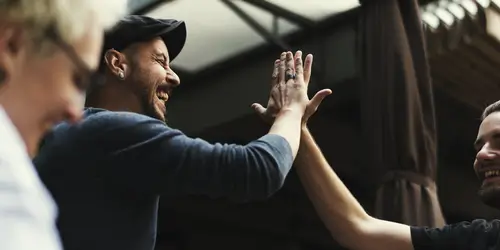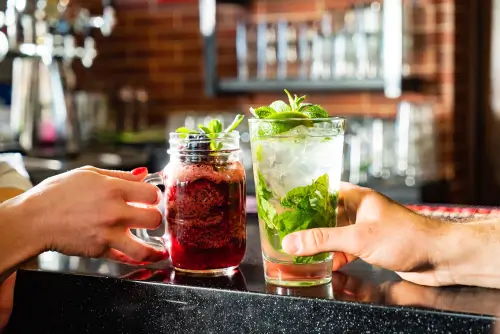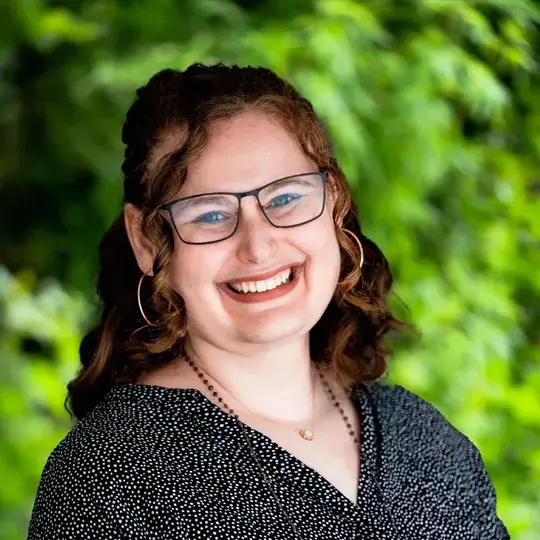If you’re wondering how to make sober friends in your twenties, this is the article for you. Completing an addiction treatment program or going to alcoholics anonymous can introduce you to people who are also in recovery. Still, this time is mainly spent focusing on your personal experience, and while you can make some long-lasting friends, chances are you’re still processing a lot of internal feelings, and making friends may not be one of them.
In this article, you’ll learn the benefits of sober friends, how to make and connect with other sober people, and where to find existing alcohol-free events or meetups. Take your time and think of a game plan before you go to the next sober event you see. Making friends, regardless of whether they’re sober, still requires openness and listening skills.
Benefits Of Sober Friends
Finding sober friends in your twenties can seem like a daunting experience, especially if your twenties are surrounded by people who drink or use drugs. This doesn’t mean you need to cut off everyone in your life who uses substances, except those who actively pressure you into breaking sobriety, but rather accept that your usual friends will still go to bars, breweries, or dispensaries.
You can’t uproot their lives or change every social situation into a sober one if you’re around. New friends who don’t drink or use drugs won’t replace everyone you know, but they offer you an opportunity to relax, hang with friends, and enjoy yourself without ever wondering if someone will bring a joint, six-pack, or dime bag.
These new friends have been through what you’ve been through, and they are all working on the same things (at different paces, of course). Being around people like you can inspire you to keep going and feel confident that you’ve got friends to back you if you struggle or trip up. And as young adults, friends are vital to helping us understand how others think and feel and how we understand ourselves.
Read more: 8 Ways To Get Through Severe Anxiety After Getting Sober

How To Make New Sober Friends In Your Twenties
Making friends isn’t a precise formula, but here are some general tips to start with.
- Take the initiative: Don’t wait for others to reach out, be the one to initiate contact, even if you’re an introvert. Seek out like-minded individuals who prioritize sobriety and a healthy lifestyle.
- Say yes: Accept invitations to gatherings and events that align with your sober lifestyle. Return the favor by inviting others to join you in sober activities or events.
- Start the conversation: When you’re with someone you’d like to know better, discuss your own journey and experiences. Share your journey and listen to theirs, fostering a deeper connection based on shared values.
- Show interest: Demonstrate a genuine interest in their sober journey and ask open-ended questions about their recovery and personal growth. Be a supportive listener and create a safe space for them to open up.
- Smile: Use a warm smile and maintain eye contact while discussing sobriety. Your positive energy and genuine interest will help others feel comfortable discussing their experiences.
- Share: As you establish trust and rapport, gradually share more personal stories and insights about your sobriety. Being open and vulnerable encourages others to do the same, fostering a stronger bond.
- Do a small favor: Acts of kindness within the context of sobriety can strengthen connections. Offer support, encouragement, or small gestures that show you genuinely care about their well-being.
- Keep it going: Exchange contact information and actively contact your sober friends. Reach out regularly, share resources or inspirational content, and suggest sober-friendly activities or events to maintain a strong connection centered around sobriety and personal growth.
Before You Meet People
- Don’t compromise your authenticity: Stay true to yourself and embrace your sober lifestyle, even if you’re surrounded by skeptics. Avoid changing yourself or pretending to be someone you’re not to fit in. Be genuine and honest about your commitment to sobriety and living a healthy, substance-free life.
- Avoid bragging: While being proud of your accomplishments in sobriety is important, refrain from boasting about them, especially to new sober friends. Boasting can create a negative impression and may be off-putting to potential sober friends. Instead, focus on sharing your experiences and insights in a humble and relatable manner.
- Don’t be overly aggressive: Take a balanced and respectful approach when reaching out to others. Start with friendly conversations centered around sobriety and personal growth. Allow the connection to unfold naturally before suggesting meetups for sober activities or events. Being patient and understanding will help foster a genuine connection based on shared values.
- Manage your expectations: Building strong sober friendships takes time and effort. Don’t expect immediate results or an instant deep bond. Recognize that forging meaningful connections within the sober community requires patience and persistence. Research suggests it may take multiple conversations, shared experiences, and mutual support before feeling a strong camaraderie. Stay committed to your sobriety journey and trust that lasting friendships will develop along the way.
Read more: Breaking Negative Thinking & Self-Talk

Where To Find Sober Friends
If you need help finding sober friends, try checking off these suggestions before heading out.
- Your Existing Friend Group: Before you ditch everyone to pursue new friends, analyze your existing group and reach out to friends and family who’ve supported your journey or are willing to attend sober events or gatherings with you. The backing of an existing best friend can boost your self-esteem in making new friends and branching out.
- Classes: Taking classes as an adult is a great way to find friends. Choose a class that interests you, whether it’s baking, pottery, bird watching, or cycling. Doing so lets you meet people who share your interests and explore your creativity and skills. Most classes like this don’t have any drinking or drug use (unless it’s paint and sip).
- Sports Leagues: Becoming physically active not only benefits your body but also improves your mental state. Joining a recreational sports league is a fun way to exercise and make sober friends. You can bond over your favorite sports and athletes, engaging in conversations without feeling awkward. Consider sports like bowling, tennis, or even e-sports leagues to connect with like-minded individuals. But be cautious if these aren’t sober-focused sports groups. You don’t want to feel pressured to attend the afterparty at the local sports bar.
- Support Groups: Joining a support group specifically for people in recovery is the easiest way to find sober friends. Look for local support groups or use sobriety apps to discover meetings and activities organized for recovering individuals. These groups provide a safe and open environment to meet and connect with other sober individuals. Research even suggests that participation in support groups helps people maintain their sobriety for longer periods.
- Social Media: Use social media platforms like Facebook, Instagram, or TikTok to find sober friends. By connecting with online communities, you can gain inspiration, share your journey, and eventually meet in person.
- Volunteer: Joining volunteer groups that serve the community, such as soup kitchens or shelters, is an excellent way to meet sober people. Many individuals involved in volunteer work prioritize mental health and sobriety. This allows you to contribute to a worthy cause while mingling with people who share your values. Whether it’s a one-time event or a regular commitment, volunteering offers a great opportunity to meet and befriend sober individuals.
- Sober Bars: Sober bars have become popular for finding sober friends. These bars offer a fun social experience without alcohol. You’ll find activities like darts, karaoke, trivia nights, live bands, and a variety of non-alcoholic mocktails.

Contact Launch Centers
If you or someone you know is hesitant to embrace sobriety due to concerns about losing friends or struggling to find sober friends, contact Launch Centers in Los Angeles for support and guidance. Our addiction treatment and alum programs are the perfect opportunities to address substance abuse issues and make lasting sober friends. Launch Centers also partners with mental health housing programs in Los Angeles, where individuals can focus on mental health issues and substance use disorders without distractions.






